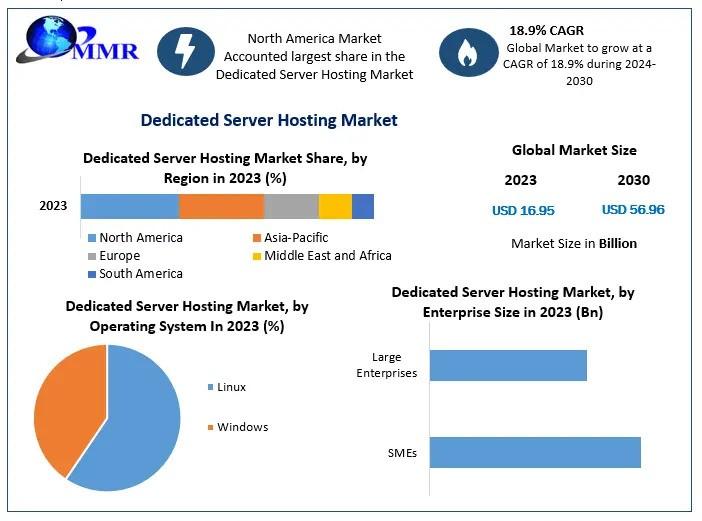When you are about to launch your website, one of the primary decisions you need to make is regarding your website hosting. As a beginner, the various hosting options can be overwhelming, but they can generally be classified into two main types: dedicated and non-dedicated servers.
What Does a Dedicated Server Mean?
- A dedicated server is entirely allocated to your website.
- All server resources are available exclusively for your use.
- It is akin to having an in-house web server without the maintenance concerns.
- This setup provides complete control over the server environment, allowing you to optimize it for your specific needs.
What Does a Non-Dedicated Server Mean?
- A non-dedicated server hosts multiple websites, including yours.
- Server resources are shared among all hosted websites.
- A single non-dedicated server can support hundreds or thousands of websites globally.
- This type of server is often used in shared hosting plans where the cost is distributed among many users.
Key Differences Between Dedicated and Non-Dedicated Servers
| Feature | Dedicated Server | Non-Dedicated Server |
| Hosting | Single website | Multiple websites |
| Cost | Higher (borne by a single website) | Lower (shared among multiple websites) |
| Resources | Exclusive to one website | Shared among multiple websites |
| Website Loading Time | Faster | Slower |
| Storage Space | Ample | Limited |
| Bandwidth | Entire bandwidth available | Shared bandwidth |
| Security | More secure | Less secure |
| Uptime | Higher uptime | Potentially lower uptime due to neighbors |
Speed of Dedicated Server vs. Shared Server
One of the most significant advantages of using a dedicated server is its speed. These servers ensure faster loading times for your website since the server resources are not shared with other websites. This is particularly beneficial for websites with high traffic volumes or resource-intensive applications. A dedicated server is also extremely reliable in case of traffic spikes, providing consistent performance and speed.

In contrast, non-dedicated servers can experience varying speeds depending on the activities of neighboring websites. High-traffic neighbors can consume significant server resources, leading to slower loading times for your site. This scenario is common in shared hosting environments. The level of resources allocated to each hosting plan can mitigate this issue to some extent, but dedicated servers generally offer superior performance.
Cost of a Dedicated Server
The cost of a dedicated server can vary widely based on the specifications and features provided. Typically, prices range from $75 to $550 per month. The higher cost is due to the exclusive use of server resources and the maintenance required to keep the server running smoothly. This includes expenses related to hardware, software, and technical support.
While dedicated servers are more expensive, they offer better performance, security, and reliability. The investment can be justified for businesses that require high-performance hosting solutions or have sensitive data that needs robust security measures.
Choosing a Good Dedicated Server
- Budget: Consider both short-term and long-term costs. While dedicated servers are more expensive, they can provide better value in the long run due to their performance and security benefits.
- Available Bandwidth: Ensure the server offers sufficient bandwidth to meet your website’s needs. High-traffic websites or those with large media files will require more bandwidth.
- Server Performance: Evaluate the server’s capabilities, including CPU, RAM, and storage. These factors will impact your website’s speed and ability to handle traffic spikes.
- Functional Effectiveness: A user-friendly control panel is crucial for managing your server efficiently. Look for servers that offer intuitive interfaces and comprehensive management tools.
- Potential Server Downtime: Ensure the hosting provider offers quick resolution of technical issues. Even dedicated servers can experience downtime, so reliable technical support is essential.
- Physical Location: The server’s location can affect your website’s performance. Choose a server close to your target audience to minimize latency and improve user experience. For instance, if your business and customers are in the UK, opting for a dedicated server in London will enhance your website’s performance.
- Technical Support: Opt for hosting providers that offer 24/7 technical support. This ensures any issues can be resolved promptly, minimizing downtime.
- Server Scalability: Choose a server that can grow with your website. As your traffic and data needs increase, the ability to upgrade your server easily is crucial.
- Server Security: Ensure the server is protected by robust security measures, including firewalls and encryption. This is vital for protecting sensitive data and maintaining customer trust.
- Reliable Host: Select a hosting provider with a proven track record and positive customer reviews. A reliable host will ensure consistent server performance and support.
- Server Backup: Automated backups are essential for protecting your data. Choose a hosting plan that offers real-time backups to safeguard against data loss.
What is a Semi-Dedicated Server?
A semi-dedicated server is a hybrid solution that combines elements of dedicated and non-dedicated servers. It offers better power and flexibility than a non-dedicated server while being more affordable than a fully dedicated server. Semi-dedicated servers host fewer websites, providing more resources and improved performance compared to shared hosting.
These servers are typically found in cloud environments, offering a balance between cost and performance. They are ideal for businesses that need more resources than shared hosting can provide but do not require the full power of a dedicated server.
Is a Cloud Cheaper than a Dedicated Server?
Yes, cloud servers are generally cheaper than dedicated servers. Cloud hosting plans can start as low as $4.50 per month and go up to $850, depending on the resources and features required. Cloud servers are cost-effective because they distribute resources across multiple virtual servers, reducing the overall cost.
Cloud hosting also offers better redundancy and uptime since your website is not dependent on a single physical server. If one server fails, your website can be quickly moved to another server within the cloud infrastructure, minimizing downtime.
Conclusion
Choosing the right hosting solution for your website involves evaluating your current and future needs. A dedicated server provides superior performance, security, and reliability, making it an excellent choice for businesses with high-traffic websites or sensitive data. However, the higher cost must be justified by the benefits it offers.
If a dedicated server is beyond your budget, consider semi-dedicated or cloud hosting options that provide a balance between cost and performance. Ultimately, the best hosting solution is one that meets your specific requirements and supports your long-term growth.
FAQs
1. What is a dedicated server?
A server exclusively allocated to one website, offering superior performance and security.
2. What is a non-dedicated server?
A server that hosts multiple websites, sharing resources among them.
3. Why are dedicated servers expensive?
Costs are higher due to exclusive use of server resources and maintenance.
4. What is a semi-dedicated server?
A hybrid solution that combines elements of dedicated and non-dedicated servers, offering better performance than shared hosting.
5. Is cloud hosting cheaper than dedicated hosting?
Yes, cloud hosting is generally more affordable and offers better redundancy and uptime.
https://www.ilounge.com/articles/difference-between-dedicated-and-non-dedicated-servers






